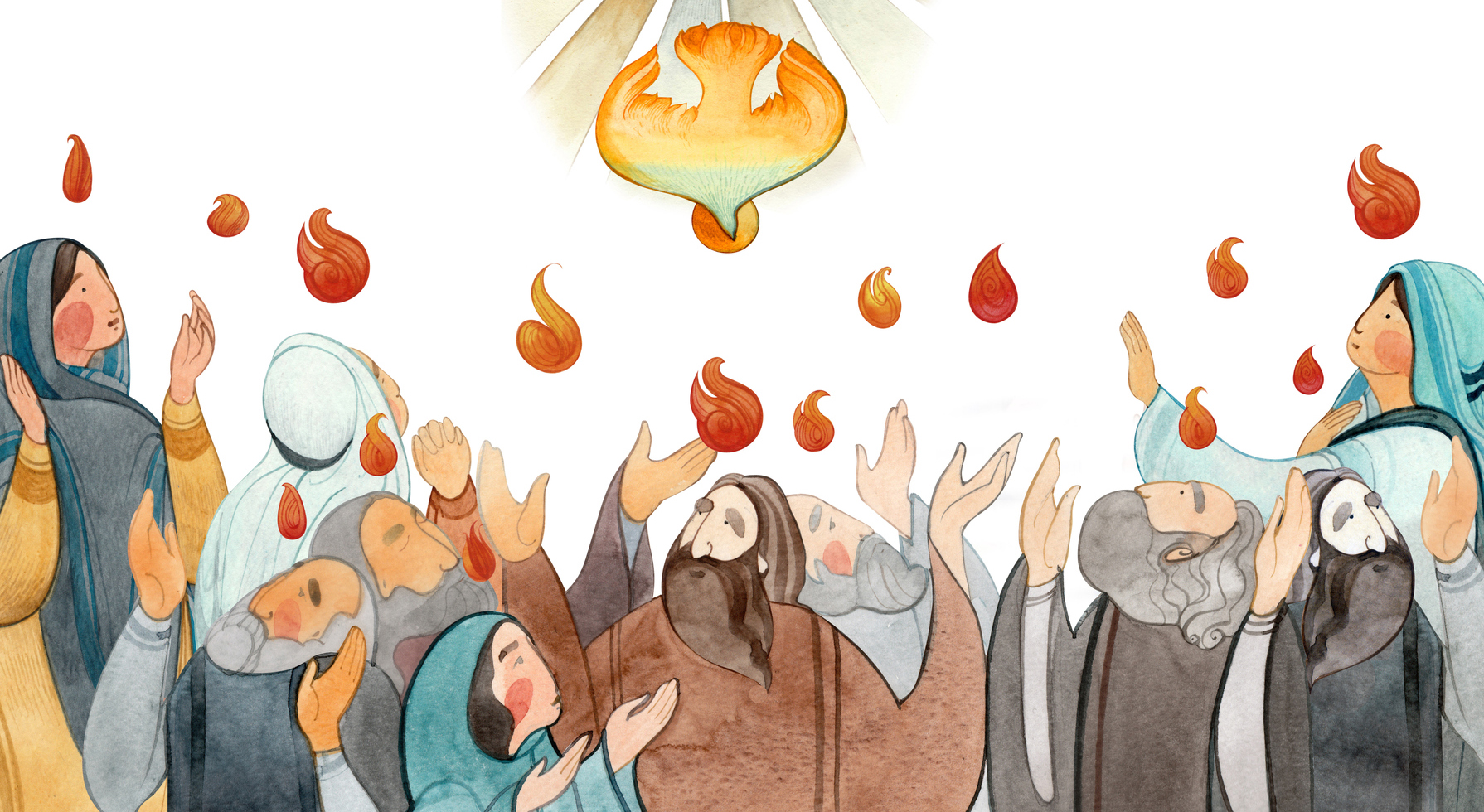Lectionary for May 28, 2023
Day of Pentecost
Acts 2:1-21; Numbers 11:24-30; Psalm 104:24-34;
1 Corinthians 12:3b-13; John 20:19-23
All too often we like our comfortable boundaries. We hang out with people who think like us and who frequently look like us too. We want all our sermons to follow good Lutheran law and gospel patterns. And we want our coffee and fellowship time to be short, positive and unintrusive to the rest of the week, right? Well, I know that’s making too many assumptions, but comfortable patterns are comfortable for a reason. They are what we are used to and have settled into, like a well-loved easy chair. This week we have stories in the lectionary texts about God removing comfort zones and confronting humans with the movement of the Spirit, who defies our categories and separations.
I love the Numbers text, and I hope everyone will find a way to use it this week. Moses has been over-functioning in his role as prophet and community leader. God, recognizing that Moses is worn out and needs help from other leaders, tells him to constitute another council of 70 elders (a similar group will eventually be known as the Sanhedrin). Moses gathers most of these leaders at the tent of meeting, which was set apart from the rest of the Israelite camp. Taking the Spirit that rested on Moses, God gives some to the rest of the leaders to empower and inspire them for the ministry to which they had been called.
But not all from this group of elders attend the meeting. Eldad and Medad remain among the people, who see them prophesy. A young man goes to tell Moses that prophesy was breaking out in the camp. Joshua ben Nun then urges Moses to shut Eldad and Medad up. Joshua is probably trying to protect Moses’ holy status and the centrality of the tent of meeting. After all, folks hearing God’s words directly might mean that Moses and the holy place aren’t as essential as thought! But Moses rebukes Joshua, saying he wished all the people would prophesy.
Proclaiming God’s words is not to be the honored domain of only a few privileged folks who leave their neighbors for a time to go to a special training center—whether it be the tent of meeting or a seminary. Instead, Medad and Eldad were chosen, empowered and inspired by God while they stayed in their contexts. When I teach seminarians in remote study programs, I make sure to read this text. Of course, there is value in residential training programs in which students come to centers of learning and ministry! But we must never look down on folks whom God chooses to lead who have alternative journeys. God’s Spirit breaks down barriers and expectations of who can lead and what their commissioning must look like.
God’s Spirit values and speaks in the voices of all people: male and female, young and old, slave and free.
Much later, in the Jerusalem Pentecost after Jesus’ death and resurrection, God’s Spirit once again shatters expectations and boundaries. God inspires Galileans to speak in the languages of all the people who stayed in Jerusalem to celebrate the pilgrimage festival. Jews from across—and, crucially, outside—the Roman Empire hear Galileans speaking their languages and testifying to what God had done in and through Jesus.
Everyone had come for the same festival, to be sure. But, as now, holiday traditions and customs varied by ethnicity. Arab Jews behaved differently from Persian Jews, from Greek Jews and from Roman Jews. And suddenly, some Galilean Jews are crossing boundaries and participating in formerly separate conversations that they had no prior access to because of the boundary-breaking power of God’s Spirit.
Some, of course, can’t stand this breakdown of linguistic and ethnic separation. Despite the clear intelligibility of the disciples, the scoffers say the Galileans must be drunk already on the new wine being gathered for the festival. Peter says it’s too early for that (not that it wouldn’t happen later …). Instead, Peter reminds the crowd of the words of the prophet Joel whom they already knew. God’s Spirit values and speaks in the voices of all people: male and female, young and old, slave and free.
What people witnessed at the Jerusalem Pentecost is what God always intended: to use the power of the Spirit to break down barriers that humans construct to separate ourselves from others, and to insulate ourselves from the ministry God is doing through people who don’t look, act, sound, train or think in the ways we do. We must follow God’s Spirit into the uncomfortable places where God is working.









